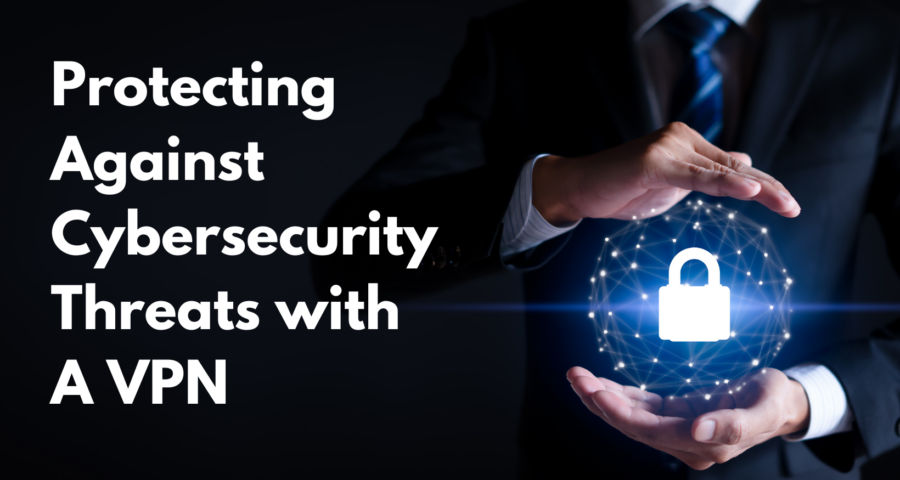Introduction to Enhancing Online Security:
In today’s digital age, enhancing online security has become more crucial than ever. With the increasing number of cyber threats lurking around, individuals and organisations must take proactive measures to protect their sensitive information. One such effective tool that can bolster your online security is a Virtual Private Network (VPN). In this blog post, we will explore 10 common cybersecurity threats and delve into how a VPN can help mitigate these risks.
I. Common Cybersecurity Threats that Affect Online Security
A. Phishing Attacks
Phishing attacks are one of the most prevalent cybersecurity threats, targeting unsuspecting individuals and organisations. These attacks involve malicious actors posing as trustworthy entities to deceive users into revealing sensitive information like passwords, credit card details, or social security numbers. Phishing attacks can occur through various channels, including emails, smishing (SMS phishing), and vishing (voice phishing). By using a VPN, you can enhance your online security by encrypting your internet traffic, making it harder for attackers to intercept your sensitive information.
B. Malware Infections
Malware refers to malicious software designed to infiltrate computer systems and cause harm. It can come in various forms such as viruses, worms, or ransomware. Malware infections can lead to data loss, system crashes, and even financial loss. By using a VPN, you can add an extra layer of protection against malware attacks. VPNs encrypt your internet connection, making it difficult for cybercriminals to access your devices and infect them with malware.
C. Man-in-the-Middle Attacks
Man-in-the-Middle (MitM) attacks occur when a malicious actor intercepts communication between two parties without their knowledge. These attacks can happen on unsecured Wi-Fi networks or compromised routers. Once the attacker gains access, they can eavesdrop on sensitive information, modify data, or even inject their own malicious code. By using a VPN, you can create a secure encrypted tunnel between your device and the internet, effectively preventing any unauthorised interception or tampering of your data.
D. Data Breaches
Data breaches have become increasingly common and can have severe consequences for individuals and businesses alike. Cybercriminals target databases containing personal or sensitive information, such as credit card details or social security numbers. The stolen data is then sold or used for various malicious purposes, including identity theft and financial fraud. VPNs play a crucial role in protecting your data by encrypting your internet traffic, making it extremely difficult for hackers to access and decipher your information.
E. Identity Theft
Identity theft occurs when an attacker steals someone’s personal information and uses it for fraudulent activities. This can include opening credit accounts, making unauthorised transactions, or even committing crimes under someone else’s identity. VPNs help protect against identity theft by encrypting your online activities and masking your IP address. This makes it nearly impossible for cybercriminals to trace your online footprint or obtain your personal information.
II. How a VPN Can Help with Enhancing Online Security
A. Encryption
Encryption is a fundamental feature of VPNs that ensures the confidentiality and integrity of your data. When you connect to a VPN server, your internet traffic is encrypted, transforming it into an unreadable format for anyone attempting to intercept it. By using strong encryption protocols such as OpenVPN or IPSec, VPNs create a secure tunnel that safeguards your sensitive information from prying eyes.
B. Anonymity
Privacy is a crucial aspect of online security, and VPNs provide a way to browse the internet anonymously. When you connect to a VPN server, your IP address is masked, making it difficult for websites or malicious actors to track your online activities. This anonymity adds an extra layer of protection, ensuring that your online behaviour remains private and reducing the risk of targeted attacks.
C. Public Wi-Fi Protection
Public Wi-Fi networks, such as those found in cafes, airports, or hotels, are notorious for their lack of security. Hackers can easily intercept data transmitted over these networks, potentially gaining access to your sensitive information. By using a VPN on public Wi-Fi, you create an encrypted connection that shields your data from potential eavesdroppers. VPNs act as a secure gateway, protecting your information even on untrusted networks.
D. Geo-blocking Bypass
Geo-blocking is a technique used by content providers to restrict access to their services based on the user’s geographical location. This can be frustrating when you want to access specific content that is not available in your country. VPNs allow you to bypass geo-blocking by connecting to a server located in a different country. This way, you can appear as if you are browsing from that country, granting you access to geo-restricted content.
Conclusion to our blog about Enhancing Online Security:
As we navigate the digital landscape, understanding and addressing cybersecurity threats is of utmost importance. In this blog post, we explored 10 common cybersecurity threats and discussed how a VPN can help protect against them. By encrypting your internet connection, ensuring anonymity, securing public Wi-Fi usage, and bypassing geo-blocking, VPNs provide a robust defence against cyber threats. Prioritising your online security and adopting a VPN can significantly enhance your protection in an increasingly interconnected world.
Protect your digital life with a VPN today and safeguard your sensitive information from cybercriminals and prying eyes.
Remember, staying informed and proactive is the key to maintaining a secure online presence.


Leave a Reply